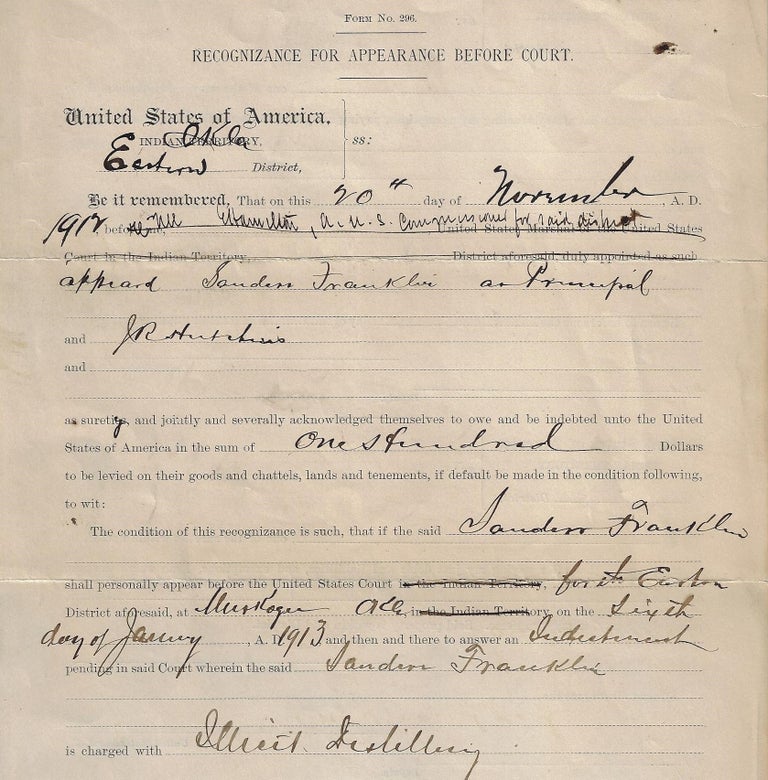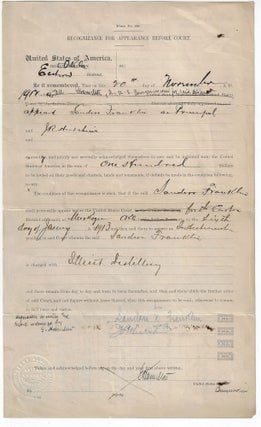Legal Document Regarding a "Black Indian" Charged with Operating an Illegal Distillery and Later Lynched by a Mob
Partially printed document completed in manuscript, recording a $100 bond paid (or pledged) for Sanders Franklin, who has been charged with operation of an illegal distillery. Very good condition, with a two-inch split along one fold. The form used dates from the pre-Statehood (1907) era, and in several places the printed words "Indian Territory" have been crossed out by hand, with "Okla." or the U.S. court district and location written instead. Though on its surface this is an ordinary legal document, there is a fascinating history related to it. Sanders Franklin (born ca. 1854) was a Chickasaw Freedman or "Black Indian," – meaning he was an African-American born as a slave in the Chickasaw Nation and freed in 1866 as part of a treaty between the United States and the Five Civilized Tribes. Although the treaty dictated that the freedmen were to be adopted as full citizens with rights in their respective nations, the tribes (especially the Chickasaw) did not welcome them, leaving them doubly disenfranchised, without access to education or political power. As explained in the Encyclopedia of Oklahoma History and Culture, "Social interaction, outwardly peaceful in most of the territory, sometimes changed to racial violence when freedmen attempted to exercise their rights." Although we do not know the background behind this liquor-related charge, we do know that less than two years later, Sanders Franklin was charged with the murder of a white man. According to a contemporary newspaper report, Sanders said the man had attacked him with a knife, after a dispute over payment for some whiskey led to the white man calling him "all manner of vile names," to which he took offense. Interestingly, in later accounts, the cause of the fight was listed as a "dispute over a watermelon." Fearing a lynch mob in Garvin County, where the incident occurred, Sanders hid out for several days. But when the Sheriff of neighboring Carter County worked out a plan with some of Sanders' friends, he "stated that he was glad of a chance to surrender to Sheriff Garrett as he knew he would be protected from the mob." The Daily Ardmorite reported that "The old man stoutly denies the killing and maintains that he will be able to establish his innocence when the case comes to trial… [He]was in good spirits this morning, ate a hardy breakfast, said that he enjoyed a good night's rest and was enjoying his pipe and tobacco when interviewed." Sadly, Sanders' belief in Garrett's ability to protect him was misplaced. On August 13, 1914, Sanders and another prisoner were being transported for trial by just one deputy when they were set upon by a mob of 150 white men. Accounts differ on whether they were shot or hung, but both men were murdered, bringing a tragic end to a life lived under circumstances of great social upheaval and racial injustice.
Item #20866
Sold




